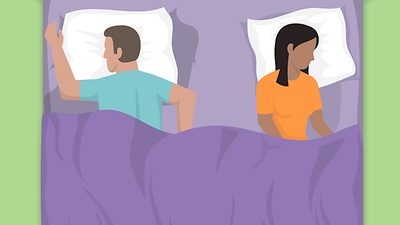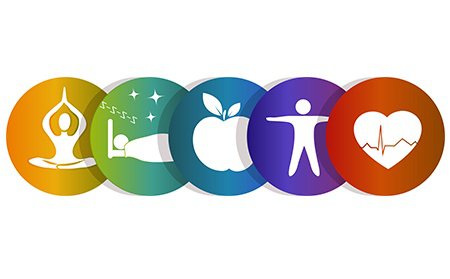Important ways to consider to avoid afternoon slumps.
The majority of us have experienced highly productive mornings where we finished assignments. Also, worked to clear our inboxes and resisted the impulse to tweet at our coworkers. As 2:00 rolls around, you might as well close the blinds, put on your jammies, and go to bed.
Whenever the afternoon comes around, it’s quite normal to feel extremely exhausted. The noon slump can be caused by circadian rhythms, which have an impact on your sleep patterns.

You may wish to take an afternoon nap because your “sleep signals” actually peak at night and in the afternoon (at around 2 p.m.).
Your energy may also be impacted by other elements, such as what you eat, and how well you’re hydrated. Also, how much time do you spend staring at a screen.
Consider it time to relax on your office chair. Here are some strategies for combating weariness as soon as it manifests.
What is the Afternoon Slump?
As your energy levels drop in the late afternoon, it’s known as the afternoon slump. You may find it difficult to focus at work, lose interest in working exercise, and feel overall lethargic. Also, slow, and unable to think of anything other than snatching up another cup of coffee or fitting in a quick sleep.
Not simply in the mid-afternoon slump do you feel exhausted. Your morals and self-control are compromised, as well as your ability to drive safely.
What Causes the Afternoon Slump?
Contrary to popular perception, a big lunch is not what causes the afternoon slump (but it can be exacerbated by one). Your circadian cycle is to blame.
The internal biological clock in your body is called the circadian rhythm. This clock regulates things like your sleep-wake cycle when your body generates specific hormones. Also, when your body temperature changes on an approximately 24-hour cycle.
Your daily timing can vary, but your generally steady flow of energy takes the form of:
- You experience grogginess or sleep inertia when you awaken.
- You experience your initial energy surge in the morning.
- You have an afternoon blah.
- In the late afternoon or early evening, you experience a second-wind energy surge.
- Your activity level decreases till sleep
So, the majority of the time, your body’s biological makeup is to blame for your energy slump in the afternoon. There might, however, be more factors at work.
You might experience afternoon fatigue more than usual if:
- You haven’t had enough rest.
- Your circadian cycle is out of whack.
- You suffer from a sleeping issue such as sleep apnea.
- You have a medical issue like ADHD that makes it difficult for you to sleep and stay awake.
How to Beat the Afternoon Slump?
Lower Your Sleep Debt
The amount of sleep you owe your body in total is called your sleep debt. It is compared to your sleep demand, which is the amount of sleep per night that is controlled by your genes.
According to one study, the recommended amount of sleep per night is 8 hours 40 minutes, plus or minus 10 minutes. Although 13.5% of people may require 9 hours or more.
To find out your exact number, turn to the RISE app. Your exact amount of sleep is determined by RISE using historical phone use data and proprietary sleep science-based models. The amount of sleep debt you are carrying can then be calculated by the app. To feel and perform at your best, we measure this over the previous 14 nights and advise that you keep it under five hours.
Even while you can always have a fall in energy in the afternoon, you’ll notice it more after a sleepless night or when your sleep debt is high. Reduce your sleep debt to lessen how tired you feel overall and in the afternoon slump.
Sync Up with Your Circadian Rhythm
Your circadian rhythm is what makes you feel so weary in the afternoons, but if you’re not synchronizing your lifestyle with it, you may feel even less energised at this time and throughout the rest of the day. Circadian rhythm may be out of whack if:
- You work the night shift.
- You’re living contrary to your chronotype. For example, if you force yourself to get up early while being a night owl. Here, we discuss how to maximize the potential of your chronotype.
- When your physiological clock and social clock don’t sync. This can happen due to an erratic sleep routine, you get social jet lag. For instance, 87% of us, on average, go to bed two hours later on the weekends than we do during the week.
Schedule Your Day
You can lessen how severely the afternoon slump affects you each day by reducing your sleep debt and synchronizing with your circadian clock. The energy slump is still a normal aspect of your biology, therefore you’ll probably always experience it to some degree.
Working with the slump rather than against it will help you if you can’t overcome it. Employ rise to determine when your daily afternoon slump will occur, and then plan your day accordingly.
For instance, if at all possible, plan simpler work for your afternoon slump, such as administrative duties, emails, and catch-up meetings with low stakes. Reserve laborious chores, like writing, programming, or making presentations, for when your energy is at its highest.
Take a Break
Sometimes, during your afternoon energy slump, you can’t even do simple administrative activities. It’s better to take a break at this point and take a step back.
Take a stroll, finish some pointless housework, or engage in a soothing hobby like reading or listening to music. After you feel more energised and capable of being productive, return to work.
Use your weekend afternoon slump for some peace and quiet. Read a book, watch TV, or snooze with the kids (more on the power of naps below).
According to research, judges tend to make less favourable decisions on cases as the day goes on, but taking a break allows them to refocus. It is preferable to take brief but frequent breaks throughout the day, and to avoid waiting until the end of your schedule. Even taking pauses has been found to keep you focused on your objectives.
Work on a Task
Although if it doesn’t seem like it while you’re exhausted, the afternoon slump may be the ideal time to concentrate on a project that calls for insight, creativity, and problem-solving abilities.
According to research, you might be more adept at these tasks when your circadian cycle is not at its best. Hence, even though the afternoon is typically best suited for simple chores, try working on a challenging job on your to-do list during your afternoon slump to see if your brain can come up with new answers then.
Go to sleep
If you’re sleep deprived, taking a nap will help you reduce your sleep debt and increase your vitality. Even if you’ve been getting enough sleep lately, a midday nap can still assist to increase your energy, mood, and performance.
The best time to take a nap is also during your afternoon slump because sleeping now shouldn’t make it more difficult to fall asleep later.
It has been demonstrated that taking a 10-minute sleep in the afternoon increases vigour, vitality, and cognitive performance. Some of these advantages remain for more than 2.5 hours, so you should be able to finish the rest of the workday.
Get Some Exercise
The last thing on your mind in the afternoon when you’re feeling drowsy is exercising. Nonetheless, exercising might aid in removing exhaustion so that you can return to work feeling rejuvenated.
Even while you might not be setting any personal records at the gym, if you want to save your energy peaks for work and family time, your afternoon energy slump may be the perfect time to work out.
Also, a 2020 study indicated that exercising between 3 and 6 p.m. had greater metabolic benefits than exercising between 8 and 10 a.m. for people who were either at risk for or had been diagnosed with type 2 diabetes.
Drink Caffeine in the Morning but avoid in afternoon
The seductive call of a cup of coffee might be difficult to resist when the afternoon slump sets in. Yet, caffeine can stay in your system for up to 12 hours, so an innocent cup of coffee at 3 p.m. might keep you up at night. Your sleep debt will increase as a result, which will worsen your afternoon slump the following day.
Yet there’s another way that coffee can help you get through the mid-afternoon lull.
The half-life of caffeine is between three and seven hours. Thus, it takes three to seven hours for the quantity of caffeine in your system to decrease by half, and another three to seven hours for it to decrease by half once again, and so on.
Socialize with Friends or Colleagues
Your energy can increase by socialising. Hence, if you’re experiencing a mid-afternoon energy slump, stop by a colleague’s desk for some energising small talk (if they’re also experiencing a dip in energy) or work on a project together. During this time, you can also take a break and talk to a friend or family member.
As you interact with others, dopamine and oxytocin are released, which improves your mood, lowers your cortisol levels, and lessens stress.
Need one more justification to invest in relationships? Your sleep may improve, giving you more energy throughout the day and throughout the afternoon slump.
Get Some Natural Light
Your energy can increase by socialising. Hence, if you’re experiencing a mid-afternoon energy slump, stop by a colleague’s desk for some energising small talk (if they’re also experiencing a dip in energy) or work on a project together. During this time, you can also take a break and talk to a friend or family member.
As you interact with others, dopamine and oxytocin are released, which improves your mood, lowers your cortisol levels, and lessens stress.
Need one more justification to invest in relationships? It might help you get better sleep, which will give you more energy throughout the day, including during the afternoon slump.
Eat a Healthy Lunch
We know we mentioned your lunch isn’t the cause of the afternoon slump, but if you eat the wrong items, it can make matters worse. Your afternoon energy slump may be considerably worse than usual if you eat a meal high in carbohydrates or sugary snacks.
According to research, a big lunch results in higher drowsiness and subpar performance on simulated driving exams. Make a point of choosing lunches that are high in vegetables, whole grains, complex carbohydrates, and healthy fats.
Go for things like bananas, chickpeas, kimchi, and tempeh. A 2022 study revealed that a diet strong in prebiotic and fermented foods reduced felt stress and increased subjective sleep quality.
REFERENCES:
- https://www.webmd.com/balance/ss/slideshow-beat-afternoon-slump
- https://greatist.com/happiness/boost-energy-midday
- https://www.risescience.com/blog/how-to-beat-the-afternoon-slump
- https://www.henryford.com/blog/2022/04/feeling-drowsy-how-to-overcome-the-midday-slump
For more details, kindly visit below.

